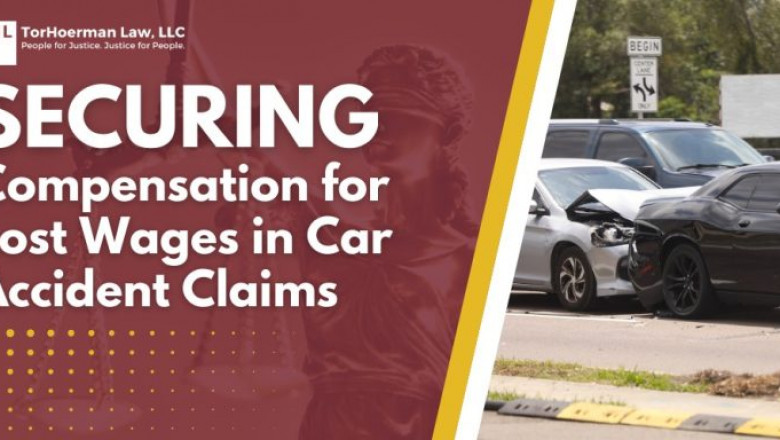16
views
views
“Lost wages” refers to the money you would have earned from your job had the car accident not occurred. This includes:


A car accident can turn your life upside down in a matter of seconds. Beyond the damage to your vehicle and the physical pain of injuries, there’s another issue that quietly wreaks havoc on your life: missed time from work. Whether it’s a few days, weeks, or even months, the income you lose after a crash can cause serious financial stress.
Fortunately, if another party was responsible for your accident, you may be entitled to compensation for lost wages. But what exactly does that mean—and how do you prove it? Let’s break it down in simple terms.
“Lost wages” refers to the money you would have earned from your job had the car accident not occurred. This includes:
Regular hourly wages or salary
Overtime you were scheduled to work
Bonuses or commissions
Paid time off (sick days, vacation days) you had to use because of the accident
Lost earning capacity if your injuries affect your ability to work long-term
In short, it’s not just about the immediate paycheck you missed. It’s about all the income opportunities that were taken from you because of the crash and its aftermath.
Anyone who was working at the time of the accident and lost income due to the crash may be eligible to claim lost wages. This includes:
Full-time and part-time employees
Self-employed workers or freelancers
Hourly wage earners
Salaried professionals
Gig workers and contractors
Even if you’re self-employed or run your own business, you can still make a claim—as long as you have documentation showing a loss of income directly tied to the accident.
Insurance companies aren’t going to take your word for it when it comes to lost income. You’ll need solid evidence to back up your claim. Here’s what that usually involves:
Medical records – These must show that your injuries prevented you from working. A doctor’s note or medical evaluation detailing your physical limitations is key.
Employer letter or HR statement – Your employer should provide a letter confirming your time off, your role, how many hours you missed, and your normal rate of pay.
Pay stubs or tax documents – These help establish your usual income before the accident. If you’re self-employed, tax returns, client contracts, and profit/loss statements can be used.
Timesheets or work schedules – If you were scheduled to work specific shifts, these can show how much time you actually missed.
The more documentation you have, the better your chances of getting fairly compensated.
In some cases, the accident causes long-term or permanent injuries that prevent you from returning to your previous job—or any job. If so, you may be entitled to compensation for lost earning capacity, which is different from lost wages.
Lost earning capacity covers income you could have earned in the future had you not been injured. This is a more complex calculation and often requires expert testimony from medical professionals and economic experts. It can include factors like:
Your career path and earning potential
Age and work experience
The severity of your injury
Ability to retrain or change careers
If this applies to your situation, it’s critical to work with an experienced personal injury attorney who understands how to present and support these types of claims.
The calculation of lost wages depends on your employment type:
Hourly workers: Multiply your hourly wage by the number of hours missed.
Salaried workers: Divide your annual salary by the number of workdays in a year, then multiply by the days missed.
Self-employed: Calculate based on previous income trends, canceled contracts, and expected income during the recovery period.
It’s important to be accurate and honest in your calculation—overstating your loss can hurt your credibility and weaken your overall claim.
Proving lost wages may sound simple, but it’s often one of the more contested parts of a personal injury claim. Insurance companies will look for ways to minimize your payout, argue that your injuries weren’t that severe, or claim you could have returned to work sooner.
A skilled car accident lawyer can help you:
Collect and organize the right documents
Accurately calculate your financial losses
Fight for a full and fair settlement
Present expert testimony if needed for long-term disability claims
Don’t assume you have to accept whatever offer the insurance company makes. With the right legal support, you can pursue every dollar you deserve.
The financial ripple effects of Lost Wages in Car Accident can last far beyond the crash itself. When you're dealing with mounting bills, physical recovery, and emotional stress, the last thing you need is uncertainty about your income.
If you’ve missed work due to an accident, take the time to document everything and consult a personal injury attorney who understands wage loss claims. Getting the compensation you’re owed won’t undo the trauma, but it can give you the breathing room you need to heal and move forward.


Comments
0 comment